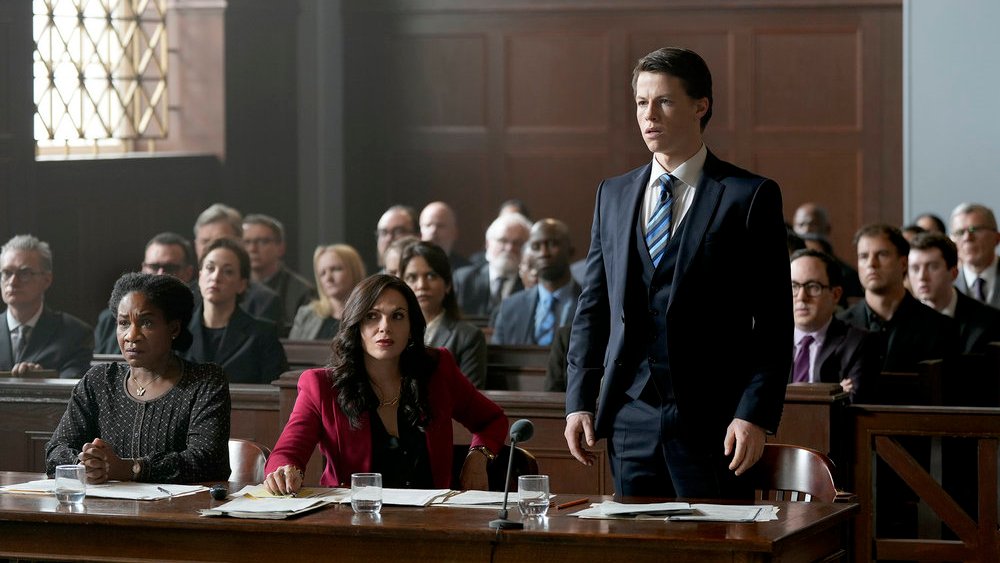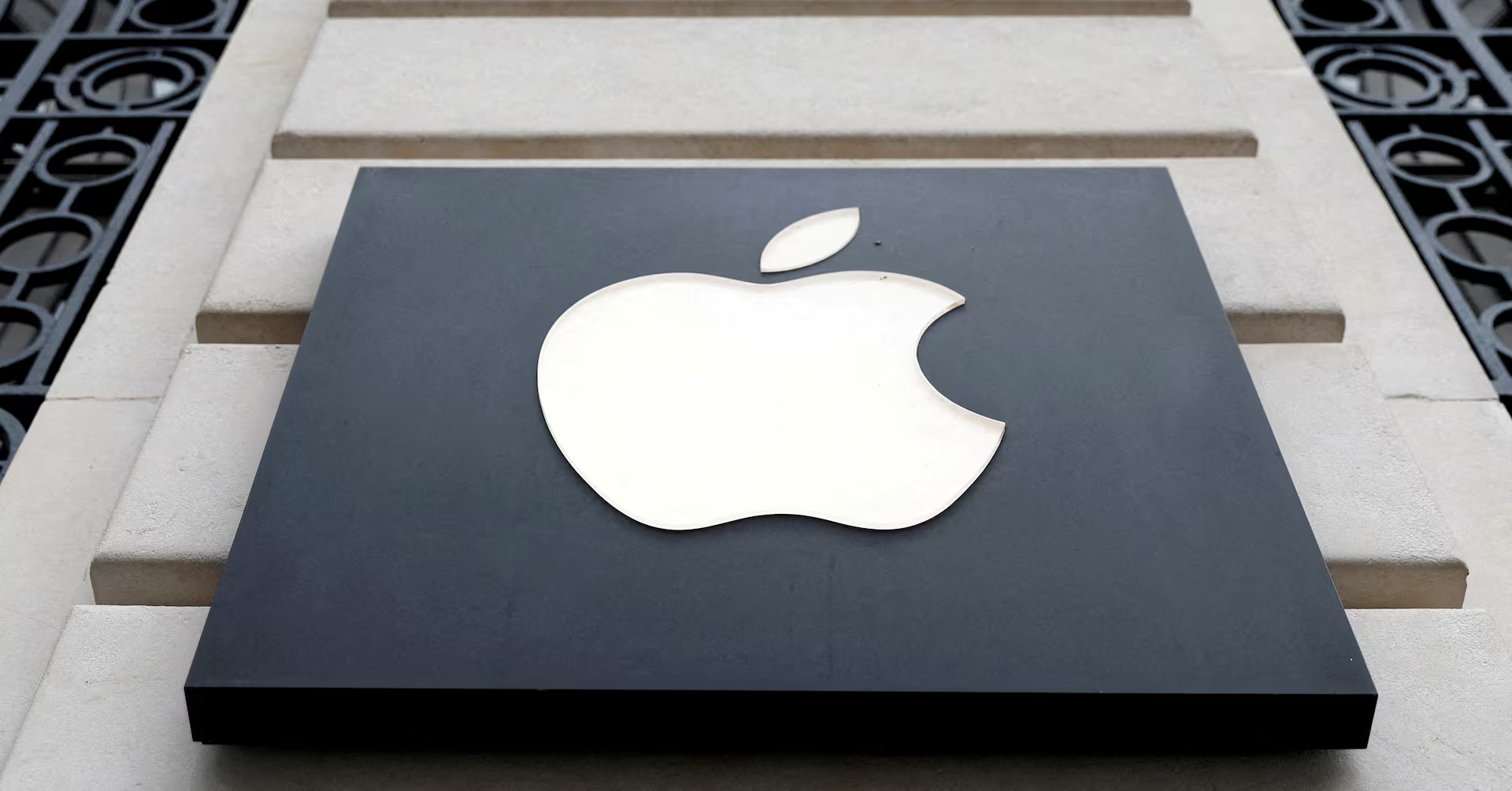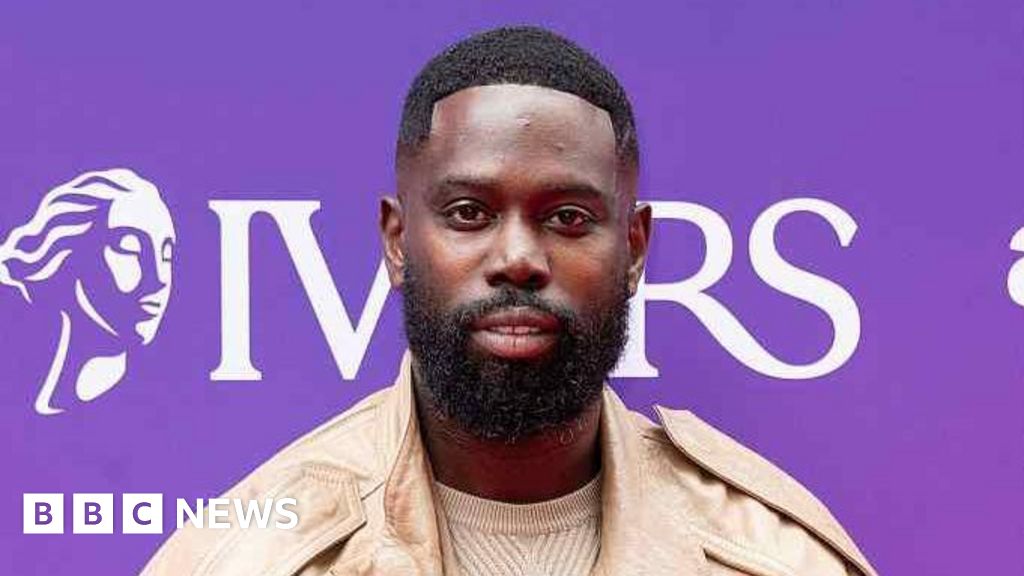No objections here: “The Rainmaker” has been renewed for Season 2 at USA Network.
The news comes less than a week after the legal drama aired its Season 1 finale at the basic cabler. Season 2 will air in 2026. The series hails from…

No objections here: “The Rainmaker” has been renewed for Season 2 at USA Network.
The news comes less than a week after the legal drama aired its Season 1 finale at the basic cabler. Season 2 will air in 2026. The series hails from…
A new ISOLDE study of molecules containing pear-shaped atomic nuclei helps shape future research aimed at testing fundamental symmetries of nature
Most atomic nuclei are round or the shape of a rugby ball. But some have…
This request seems a bit unusual, so we need to confirm that you’re human. Please press and hold the button until it turns completely green. Thank you for your cooperation!

By William Gavin
Redwood Materials plans to meet the AI-fueled demand for energy with recycled electric-car batteries
J.B. Straubel is a former Tesla executive who left to focus on his energy startup, Redwood Materials.
The battery-recycling company founded by an ex-Tesla Inc. executive can count a high-profile artificial-intelligence company among investors in its latest funding round.
Redwood Materials said Thursday it had raised $350 million in a round led by the venture-capital firm Eclipse and Nvidia Corp.’s (NVDA) venture-capital arm, NVentures. Nvidia’s contribution to the round was not disclosed, and a representative did not immediately return a request for comment.
The fundraise comes as major AI players are scrambling to meet their power needs and as the U.S. is facing difficulties building out domestic mineral-supply chains. Currently, China is – by far – the dominant force in the global supply chains for cobalt, nickel and other minerals. And rising tensions between China and the U.S. have stoked worries that some companies, including carmakers, may get cut off from lithium-ion batteries and battery materials.
Don’t miss: Quantum stocks are rising. Why they may be the Trump White House’s next investment.
“This is a pivotal time for both Redwood and the United States, as curtailment in international supplies overlaps with intense domestic demand growth for these same materials and energy products,” the company said in a statement.
Redwood said it would use the new cash to expand its growing energy-storage business, which it launched in June under the name Redwood Energy and which seeks to meet the quickly escalating demand for energy needed for AI data centers. By 2030, global power demand from data centers is set to grow 165% compared with 2023, according to Goldman Sachs.
“AI is several things. AI is energy, AI is chips, the models and the application,” Nvidia CEO Jensen Huang said in a recent interview with CNBC’s “Squawk Box.” “And we need more energy.”
Redwood believes it already has the supply chains necessary to match its ambitions. The company has said it receives batteries equivalent to 250,000 electric vehicles annually, or about 90% of all lithium-ion batteries and battery materials recycled in North America.
Redwood’s core business involves recycling scrap from consumer electronics and batteries, extracting minerals like cobalt and nickel and selling those components back to partners and battery suppliers, including Toyota Motor Corp (JP:7203).
Now it says it won’t take battery packs apart immediately, instead diverting what power remains to fuel low-cost, large-scale energy-storage systems. Once that energy is fully drained, the batteries are sent to be scrapped for parts as usual.
“Low-cost, large-scale battery energy storage has emerged as the most immediate and scalable solution to enable AI factory deployment and unlock stranded grid and generation capacity,” Redwood said in a statement.
Redwood was founded in 2017 by J.B. Straubel, a Tesla (TSLA) co-founder and executive who left the company to scale his startup. Straubel’s former employer is also seeking to meet growing energy demand.
See more: This underrated Tesla business deserves more attention – and it’s not AI
Beyond expanding its energy business, Redwood said it will also use the new capital to expand its refining and material-production capacity and build out its engineering and operations teams. The company was valued at $1 billion in late 2023, following its previous fundraising round, according to TechCrunch.
-William Gavin
This content was created by MarketWatch, which is operated by Dow Jones & Co. MarketWatch is published independently from Dow Jones Newswires and The Wall Street Journal.
(END) Dow Jones Newswires
10-23-25 1400ET
Copyright (c) 2025 Dow Jones & Company, Inc.

Players tend to really love the Asian swing for a host of reasons.
The culture. The adoring fans. The gifts. The sights. The food. The snacks.
And speaking of snacks, Top 10 players Elena Rybakina and Ekaterina…
Zahid Ahmed, a talented and intelligent actor, is known for his eloquence and meaningful insights. Currently starring in *Dil Dhoondta Hai Phir Wohi*, he recently shared his thoughts on marriage in an interview with Fuchsia during the show’s…

Sign up here.
The CAT ruled that Apple had abused its dominant position from October 2015 until the end of 2020 by shutting out competition in the app distribution market and by “charging excessive and unfair prices” as commission to developers.
Apple – which has faced mounting pressure from regulators in the U.S. and Europe over the fees it charges developers – said it would appeal against the ruling, which it said “takes a flawed view of the thriving and competitive app economy”.
The case had been valued at around 1.5 billion pounds ($2 billion) by those who brought it. A hearing next month will decide how damages are calculated and Apple’s application for permission to appeal.
Rachael Kent, the British academic who brought the case, argued Apple had made “exorbitant profits” by excluding all competition for the distribution of apps and in-app purchases.
Her lawyers argued at the start of the trial in January that Apple’s “100% monopoly position” allowed it to impose restrictive terms and excessive commissions on app developers, which Apple denied.
The CAT said in its ruling that developers were overcharged by the difference between a 17.5% commission for app purchases and the commission Apple charged, which Kent’s lawyers said was usually 30%. The CAT also ruled that app developers passed on 50% of the overcharge to consumers.
“This ruling overlooks how the App Store helps developers succeed and gives consumers a safe, trusted place to discover apps and securely make payments,” an Apple spokesperson said.
The case was the first mass lawsuit against a tech giant to come to trial under Britain’s fledgling class action-style regime, which this year reached its 10th anniversary and has seen several multi-billion-pound cases certified for trial but with limited success for consumers so far.
Fellow tech giants including Amazon and Microsoft are also facing sizeable claims at the CAT.
Kent said in a statement that the ruling shows Britain’s collective action regime is working and “sends a clear message: no company, however wealthy or powerful, is above the law”.
($1 = 0.7451 pounds)
Reporting by Sam Tobin; editing by William James and Keith Weir
Our Standards: The Thomson Reuters Trust Principles.

The rapper Ghetts has been charged with causing serious injury by dangerous driving after a fatal crash in north-east London.
The musician, whose real name is Justin Clarke-Samuel, allegedly failed to stop after hitting a 20-year-old man in…